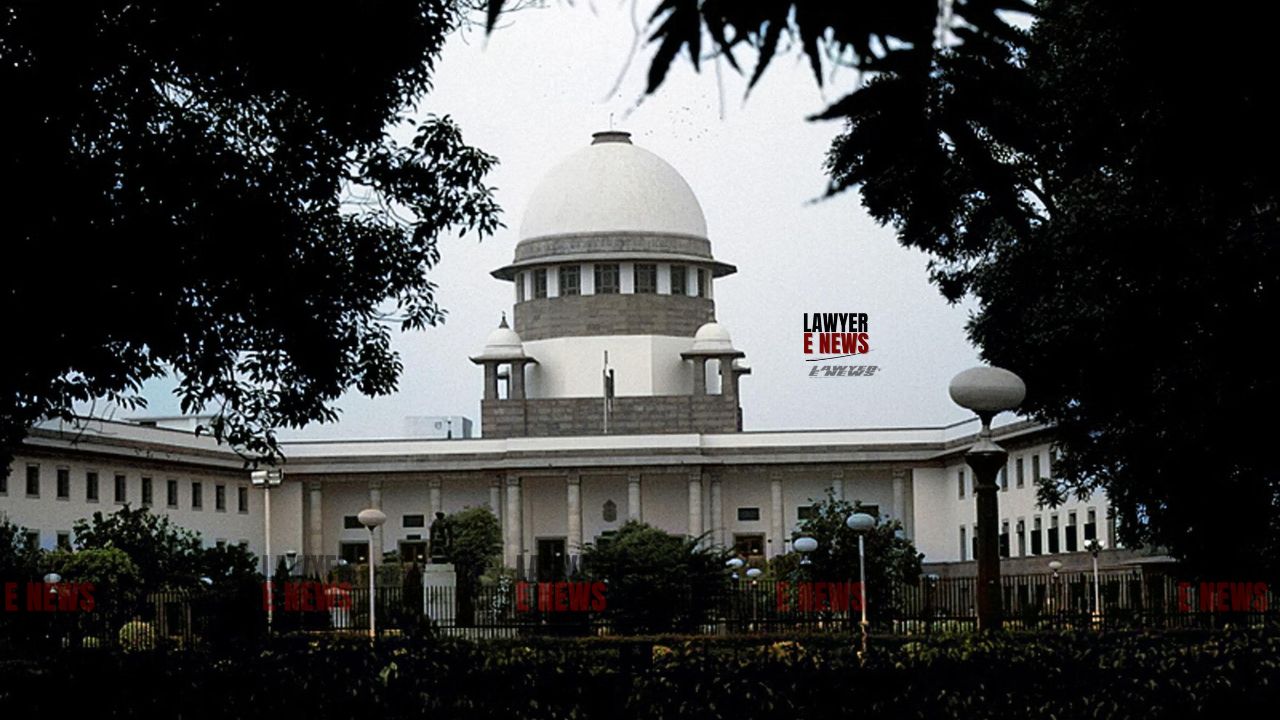-
by Admin
16 February 2026 1:47 PM



“Just because the insurer didn’t deny a late-filed survey report doesn’t mean it accepted it — that’s not how justice works.” - In a significant judgment Supreme Court of India ruled that the National Consumer Disputes Redressal Commission (NCDRC) erred in awarding compensation of ₹46.97 lakh to a leather company based solely on its own surveyor’s report — a report which the insurance company never got a fair chance to contest.
The Supreme Court held that the quantum of compensation must be reassessed by NCDRC, this time allowing both parties to present evidence.
“The NCDRC did not independently apply its mind to the quantification of the claim and blindly acted upon the alleged failure of the insurer to deny the surveyor’s report filed late.”
“Damage Was Covered — But How Much Should Be Paid? That Needs Real Scrutiny”
The case arose from a factory shed collapse on the night of August 1, 2005, allegedly caused by heavy rainfall and resulting inundation, which led to damage to plant, machinery, stocks, and buildings. The company had a comprehensive fire and perils insurance policy valid from June 30, 2005, to June 29, 2006.
While the insurer initially appointed its own surveyor, who assessed the damage at ₹8.89 lakh, the claim was ultimately repudiated on grounds that the loss was not due to an “insured peril.” This prompted Park Leather Industries Ltd. to approach the NCDRC, claiming ₹91 lakh.
Eventually, it submitted an independent survey report in its rejoinder, which assessed the loss at ₹46.97 lakh — and this became the basis for the NCDRC’s compensation award.
“Surveyor’s Report Was Filed After the Written Statement — So How Could the Insurer Deny It?”
The Supreme Court took serious issue with the manner in which the NCDRC handled the matter: “The respondent’s surveyor’s report was filed for the first time along with the rejoinder. The insurer could not have denied it in its written statement, which was filed earlier.”
The Court also pointed out that the respondent’s surveyor acted unilaterally, without any notice or participation from the insurance company — making it legally problematic to accept that report as undisputed.
“The assessment was undertaken without putting the appellant on notice and without its participation… It was unjust to presume silent acceptance.”
“Insurer Not Contesting Liability — But Quantum Needs Proper Trial”
Interestingly, the insurance company did not contest its liability under the policy anymore and agreed to pay compensation. However, it strongly objected to the quantum being fixed at ₹46.97 lakh without any judicial scrutiny or comparative evaluation.
The Supreme Court agreed and remanded the matter back to the NCDRC:
“It would be just and proper that the NCDRC undertakes that exercise now, by allowing the parties to adduce evidence in that regard.”
The Court made it clear that it was not reopening the question of liability — only the extent of loss and the actual payout.
Supreme Court Orders Fresh Hearing, Directs Transfer of ₹63 Lakh to NCDRC
During the pendency of the appeal, United India Insurance Co. had deposited ₹57.12 lakh, which had grown to ₹63.60 lakh with accrued interest. The Supreme Court ordered that this amount be transferred to the NCDRC, which will now reassess the loss and determine the amount payable.
“The deposit shall be invested in a fixed deposit with a nationalized bank under auto-renewal and shall abide by the final decision of the NCDRC.”
The Court also requested the NCDRC to give priority to this matter given the 20-year-old timeline since the incident.
“The quantum of compensation under an insurance policy cannot be decided on technical silence — it requires judicial application of mind.”
Accordingly, the Supreme Court allowed the appeal to the extent of remitting the matter for fresh consideration of compensation. The rest of the NCDRC's judgment, including liability, remains undisturbed.
Date of decision : April 7, 2025
